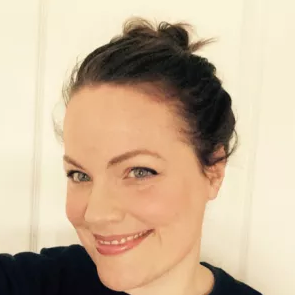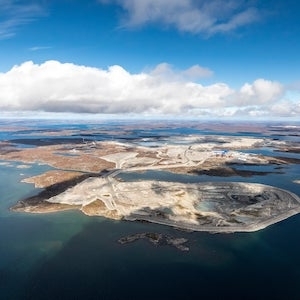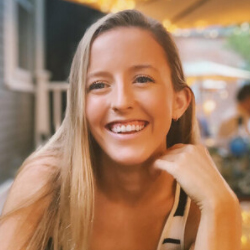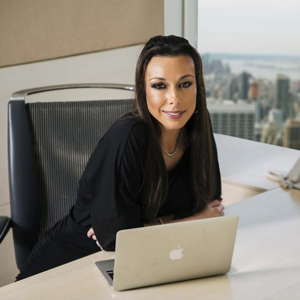
Every Thursday during the pandemic, we’re checking in on members of the jewelry trade in an attempt to glean shareable tips and tricks for doing business—and reentering our “normal” lives, both professionally and personally—during the COVID-19 crisis.
Today we hear from Debbie Azar, president and cofounder of gemological lab company Gemological Science International (GSI).
JCK: Hi, Debbie! How are you? And where are you based?
Debbie Azar: I’m doing great! I’m based in New York City, and currently I’m in the airport at the Delta lounge—my pre-pandemic home away from home—waiting to board my flight.
So you’re moving around like the “old days” again?
New York City is open for business, although it’s still not the same city we all know and love. Those who are vaccinated can go maskless. I’ve been traveling since the beginning of 2021, and my first trip started off in style with a trip to Dubai [in United Arab Emirates], although it was strange to see the normally crowded Emirates lounge practically empty. I couldn’t have planned that trip better—I was in beautiful 85 degree weather, having breakfast outdoors, while my family and GSI team members battled the first major snowstorm of the year. I wasn’t complaining!
In-person meetings, lunches, and dinners with friends and customers mean a lot to me, and it’s wonderful to finally be able to do that again.
In what ways did the COVID-19 pandemic impact GSI? How did it change the way the organization does business?
As it became apparent that our world was changing, our first thought was for our employees and their families worldwide. We have 13 laboratories globally, and every location was at a different point in the pandemic as it progressed, which brought its own unique challenges. We needed to make sure our employees were safe, first and foremost.
Some of our laboratories were on complete lockdown, and others were allowed to open with certain restrictions and regulations. We had to improvise and work with all our clients individually—the situation was fluid and changing every day, and differently per country. For example, we had to coordinate with customers who wanted to shift their production from Belgium to Israel, or, in India, from Mumbai to Surat. This really helped our global teams become more versatile.
I have a great, amazing staff, and the pandemic has highlighted the importance of having an excellent team. Your people are truly your greatest resource.
How have the last 18 months changed the diamond business?
The diamond business was forced into a serious reevaluation of what customers demand. Businesses had to have the ability to adapt to meet the needs of their customers or be left behind. Online business and service became of utmost importance. Also, [industry leaders] embracing change in a sometimes change-resistant industry has been a positive outcome. Realizing the value of personal connections, and being forced to “slow down,” has reshaped our business. Hopefully those changes remain as we move back to normal.
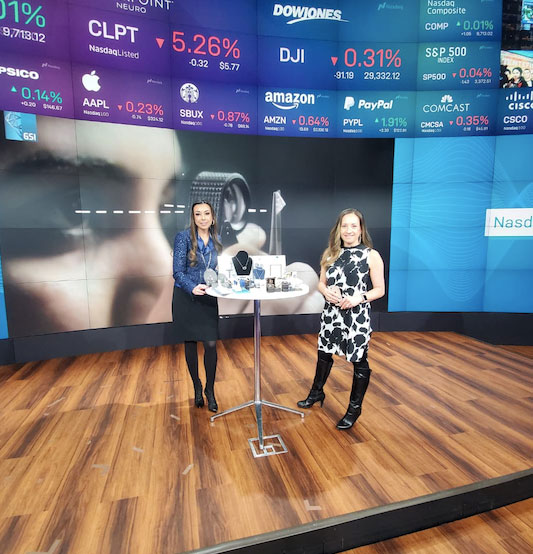
What do you think the diamond industry’s biggest hurdles will be during this next year? And what can its leaders do to overcome them?
The diamond industry is, like every other industry, facing uncertainty. Being prepared for what’s next, but not knowing what that is, can be scary. Working to anticipate the market, consumer demands…will push our industry to new heights. I think it’s important to capitalize on the fact that we’re in the business of selling jewelry, which commemorates the special moments in people’s lives.
What would you say is changing (or has recently changed) in the diamond grading business that bodes well for the future?
There are two important changes. The first is the focus on technology. The jewelry industry has been propelled into embracing technology. From e-certs to online education, diamond grading laboratories reap the advantages as we look to add value to our clients. This also means information becomes accessible to an increasingly educated and informed jewelry buyer, who requires that level of information. This makes gemological laboratories more relevant than ever as we support disclosure and transparency.
The second is the focus on people. For us, business never really stopped. Those of us that could work remotely did for only about six weeks before we were able to return to work safely. When we returned, we went from zero to a hundred overnight. I make sure our team feels valued and rewarded. We have a “work hard, play hard” company culture, so we put as much effort into taking time to enjoy our time at work as we do putting in the long hours. For example, we had a “spa day,” where we brought in massage therapists, makeup artists, and aestheticians, and everyone could get massages, manicures and pedicures, and even facials. We love to celebrate work anniversaries, and we have a large portion of our staff reaching their 10-year milestones this year. We have in-office celebrations, with food, drinks, and a lot of laughter.
How do you relax during these days, and how did you keep sane during the lockdowns?
Relax? What’s that? Anyone who knows me knows how intense I am! I relax best when I work!
What’s your frame of mind coming out of the pandemic—what are you focused on professionally and personally?
The pandemic was a test for the world, countries, governments, and people. It tested us all, our strength and our resilience. Now we are ready to move forward and put this behind us. But we should never forget what happened.
Top: Debbie Azar in her office in New York City (all photos courtesy of Debbie Azar)
Follow Emili Vesilind on Instagram: @emilivesilind
- Subscribe to the JCK News Daily
- Subscribe to the JCK Special Report
- Follow JCK on Instagram: @jckmagazine
- Follow JCK on X: @jckmagazine
- Follow JCK on Facebook: @jckmagazine
